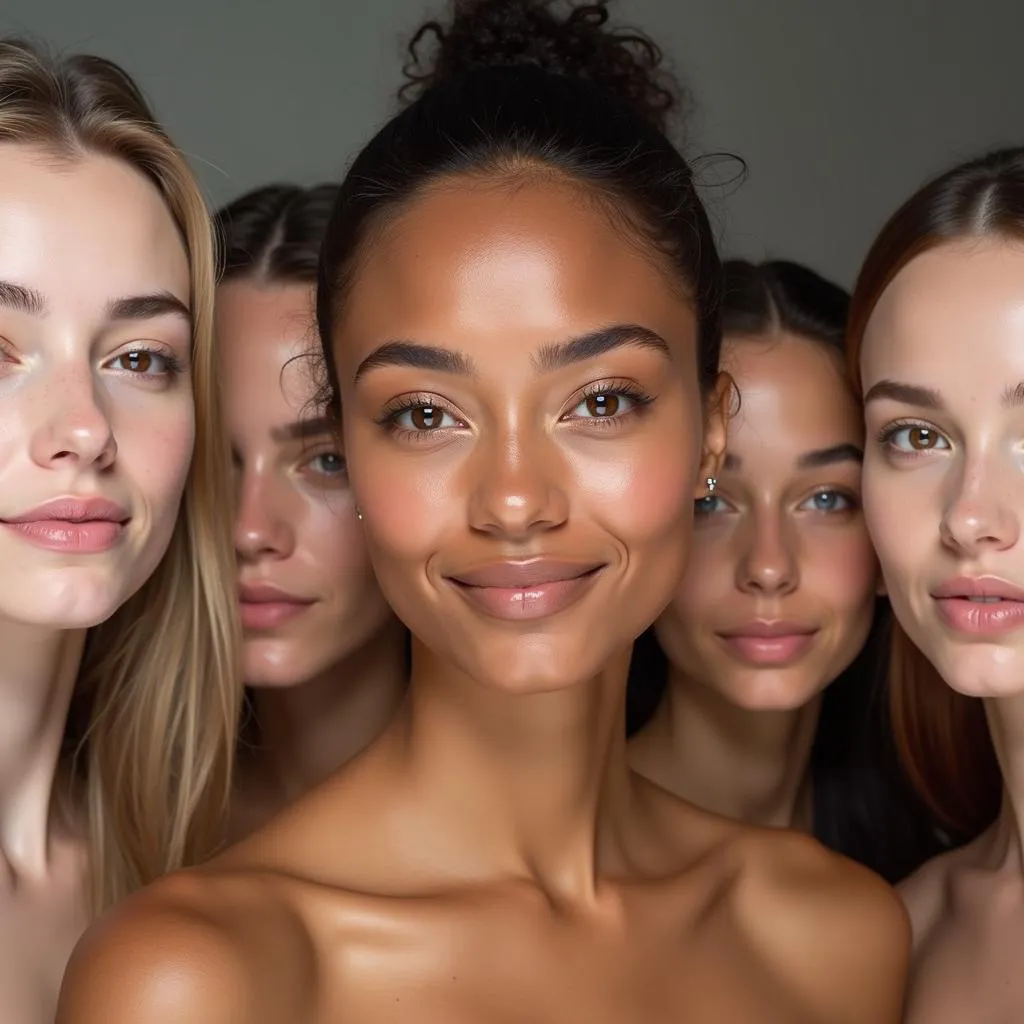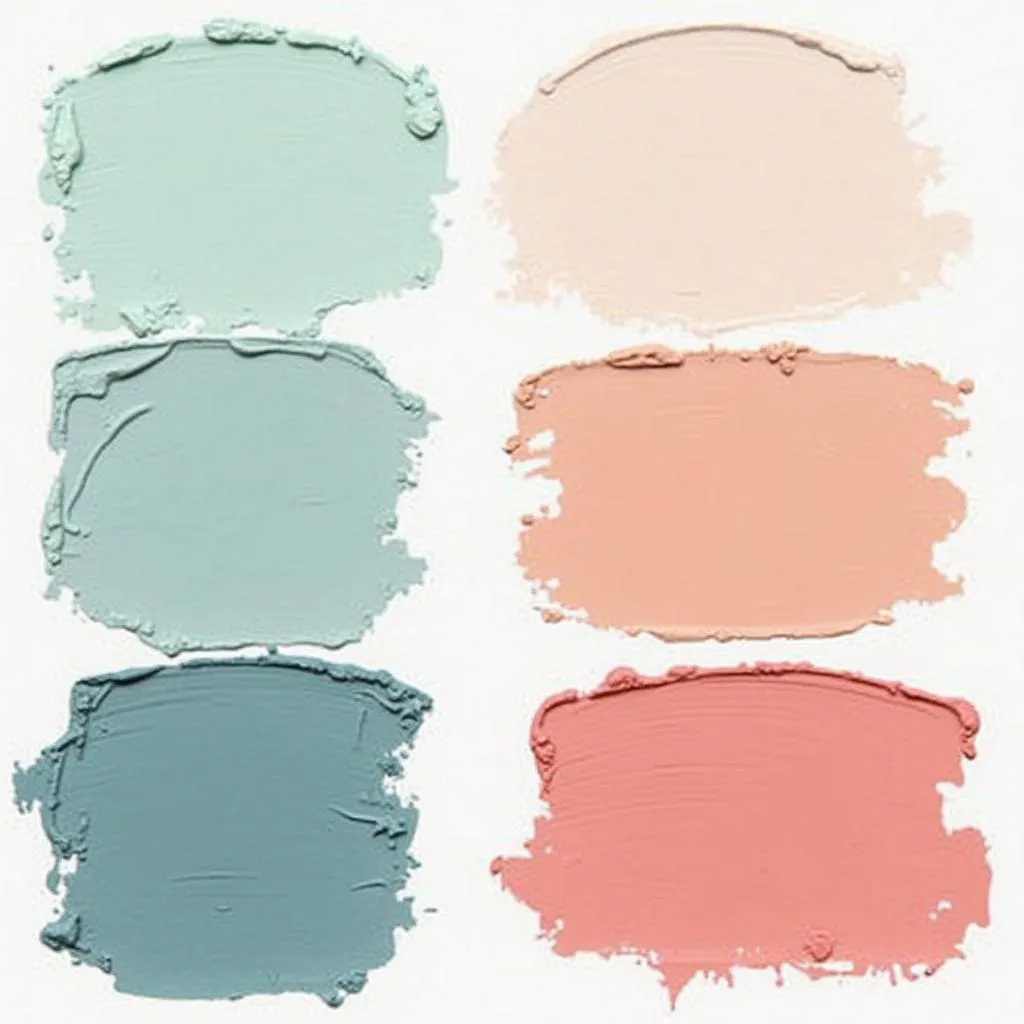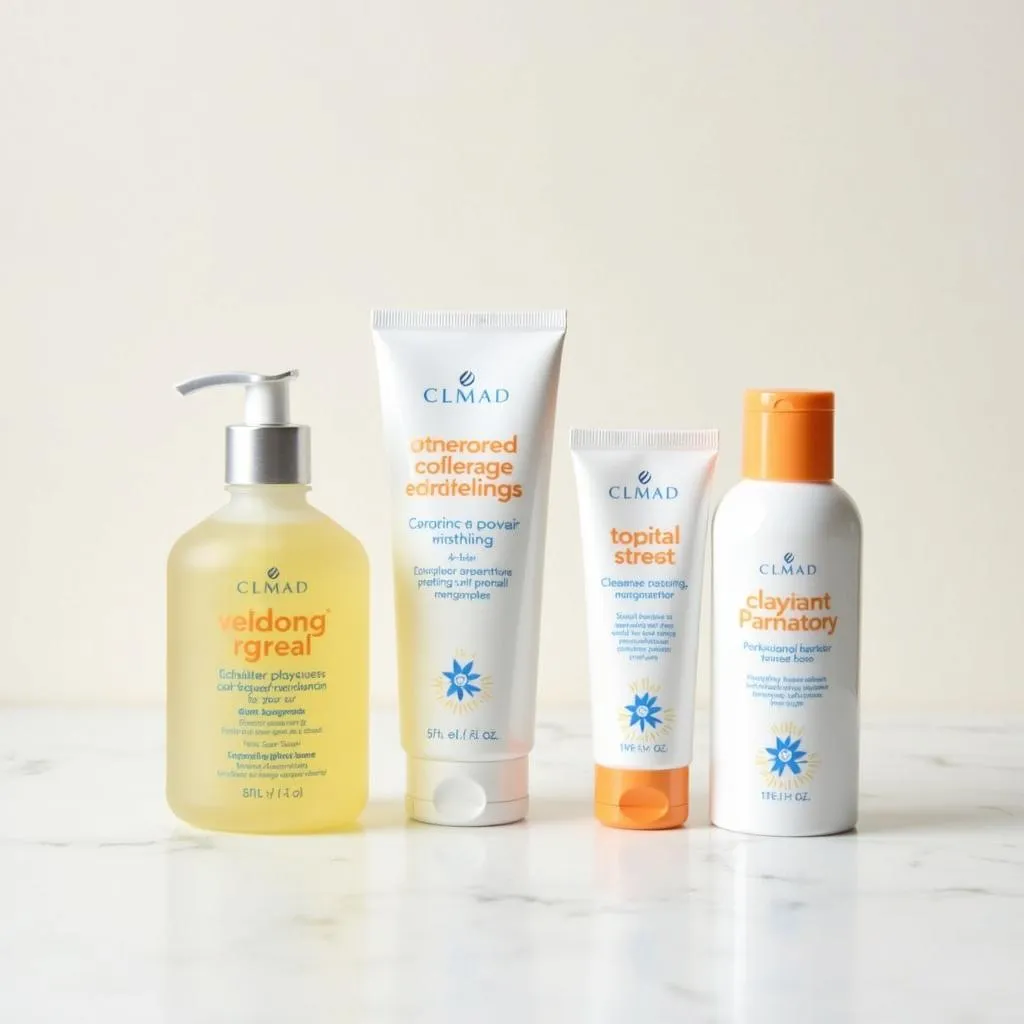Fair skin color is a term often used to describe light complexions. But what exactly determines skin color, and why do some people have lighter skin than others? Let’s explore the fascinating science behind skin tone and delve into the factors that contribute to a fair complexion.
Understanding the Science of Skin Color
Our skin, the largest organ in our body, gets its color from a pigment called melanin. Melanin is produced by specialized cells called melanocytes, which reside in the epidermis, the outermost layer of our skin.
There are two main types of melanin:
- Eumelanin: Responsible for brown and black pigments.
- Pheomelanin: Responsible for red and yellow pigments.
The amount and type of melanin present in our skin determine our unique skin tone. Individuals with fair skin produce less melanin, particularly eumelanin, compared to those with darker skin tones. This reduced melanin production allows more light to be reflected, resulting in a lighter appearance.
Factors Influencing Fair Skin Color
Several factors play a role in determining skin color, including:
- Genetics: Our genes inherited from our parents are the primary determinant of our skin color. Genes control the activity of melanocytes, influencing how much and what type of melanin they produce.
- Sun Exposure: When exposed to ultraviolet (UV) radiation from the sun, our skin produces more melanin as a protective mechanism. This is why we tan after sun exposure. Individuals with fair skin have less melanin to begin with, making them more susceptible to sunburn and skin damage from UV radiation.
- Ethnicity and Geographic Ancestry: Skin color often correlates with geographic ancestry. Populations that evolved in regions with less sunlight, like Northern Europe, tend to have fairer skin. This adaptation allowed for better vitamin D absorption in areas with reduced sunlight.
- Age: As we age, the production of melanin can decrease, leading to lighter skin tone in some individuals.
The Spectrum of Fair Skin Tones
Fair skin is not a singular shade but rather a spectrum encompassing a range of hues.
- Porcelain: The lightest shade, often characterized by a translucent appearance and a tendency to burn easily in the sun.
- Ivory: Slightly darker than porcelain with a creamy, yellowish undertone.
- Beige: A light brown shade often with neutral undertones.
- Light Almond: A warm-toned fair complexion with hints of yellow or golden undertones.
 Different Fair Skin Tones
Different Fair Skin Tones
Embracing and Enhancing Your Fair Skin
Fair skin is beautiful and unique. Here are some tips to embrace and enhance your complexion:
- Sun Protection is Key: Always wear sunscreen with an SPF of 30 or higher, even on cloudy days.
- Hydration is Essential: Keep your skin well-hydrated with a moisturizer suited for your skin type.
- Choose Flattering Colors: Experiment with different clothing colors and makeup shades to find what complements your skin tone best. Cool colors like blues, greens, and pinks often look stunning on fair skin.
- Exfoliate Regularly: Gentle exfoliation can help remove dead skin cells and brighten your complexion.
- Embrace Your Natural Beauty: Remember that true beauty comes from within. Celebrate your unique features, including your fair skin, and let your inner light shine through.
Fair Skin and Color Choices
Choosing the right colors for clothing, makeup, and even hair color can enhance your natural beauty. Since fair skin often has cool undertones, cool colors tend to be particularly flattering.
- Looking for the perfect shirt to complement your what color shirt goes with navy blue suit? A crisp white or a soft pastel blue would create a harmonious and stylish look.
- What color shirt should i wear for a passport photo? Opt for a rich jewel tone like emerald green or sapphire blue to make your fair skin glow in the photo.
 Color Palette for Fair Skin
Color Palette for Fair Skin
Fair Skin Myths Debunked
There are many misconceptions surrounding fair skin. Let’s debunk some common myths:
Myth: People with fair skin don’t need to worry about skin cancer.
Fact: While it’s true that darker skin tones have more natural protection from the sun, everyone, regardless of skin color, is susceptible to skin cancer.
Myth: Only people with fair skin can have freckles.
Fact: While freckles are more common in individuals with fair skin, people of all ethnicities and skin tones can develop freckles.
Myth: Fair skin is a sign of weakness.
Fact: Skin color has absolutely no correlation with physical or mental strength. This is a harmful and unfounded stereotype.
Caring for Your Skin: A Universal Approach
While specific skincare needs vary based on individual skin type, the fundamental principles of good skincare remain universal:
- Cleanse: Wash your face twice daily with a gentle cleanser to remove dirt, oil, and makeup.
- Exfoliate: Use a gentle exfoliant 1-2 times a week to remove dead skin cells and promote cell turnover.
- Moisturize: Apply a moisturizer suitable for your skin type morning and night to keep your skin hydrated.
- Protect: Wear sunscreen with an SPF of 30 or higher every day, even on cloudy days.
 Essential Skincare Products
Essential Skincare Products
Beyond Skin Deep: Celebrating Diversity
Skin color is just one facet of human diversity. It’s important to remember that true beauty lies in our individuality and the unique qualities that make each of us special. Let’s celebrate the spectrum of human skin tones and promote inclusivity and acceptance of all.
Conclusion
Fair skin color, a result of lower melanin production, presents a beautiful canvas that can be enhanced with mindful care and color choices. By understanding the science behind skin color and embracing your natural beauty, you can radiate confidence and let your inner light shine through. Remember, true beauty knows no bounds and encompasses all skin tones.
FAQs about Fair Skin
1. What causes my fair skin to burn so easily?
Fair skin contains less melanin, the pigment that provides natural protection from the sun’s harmful UV rays. This makes individuals with fair skin more susceptible to sunburn.
2. Can I darken my fair skin naturally?
While sun exposure can temporarily darken fair skin by stimulating melanin production, it’s important to prioritize sun safety and avoid excessive sun exposure.
3. What are the best makeup tips for fair skin?
Choose foundation and concealer shades that match your skin tone perfectly. Light, sheer coverage often works well for fair skin. Experiment with cool-toned blushes and lipsticks to enhance your natural coloring.
4. What type of clothing colors look best on fair skin?
Cool colors like blues, greens, purples, and pinks often complement fair skin beautifully. Jewel tones can also be particularly flattering.
5. I have fair skin and want to try a new hair color. Any suggestions?
How to achieve rose gold hair color? Rose gold, with its delicate blend of pink and gold, can be a stunning choice for fair skin tones. Other flattering hair color options include strawberry blonde, ash blonde, and cool brown shades. Consider which hair color is the best for me based on your personal preferences and desired look.
6. Are there any specific health concerns associated with having fair skin?
Individuals with fair skin are more prone to sunburn and skin cancer due to lower melanin levels. It’s crucial to prioritize sun protection and schedule regular skin checks with a dermatologist.
7. What can I do to keep my fair skin looking its best?
Establish a consistent skincare routine that includes gentle cleansing, exfoliation, moisturization, and daily sun protection. Eating a healthy diet rich in antioxidants can also contribute to overall skin health.
Do you have other questions about color choices and how to enhance your natural beauty?
Explore our other informative articles:
- What colors make you look skinny? Discover the art of using color to create a flattering silhouette.
Need personalized advice? Contact us!
Our team of color experts at Color Box Hanoi is here to assist you. Reach us at:
Phone: 0373298888
Email: [email protected]
Address: 86 Cau Giay, Hanoi
We offer 24/7 customer support to help you navigate the world of color and create a space that reflects your unique style and personality.
